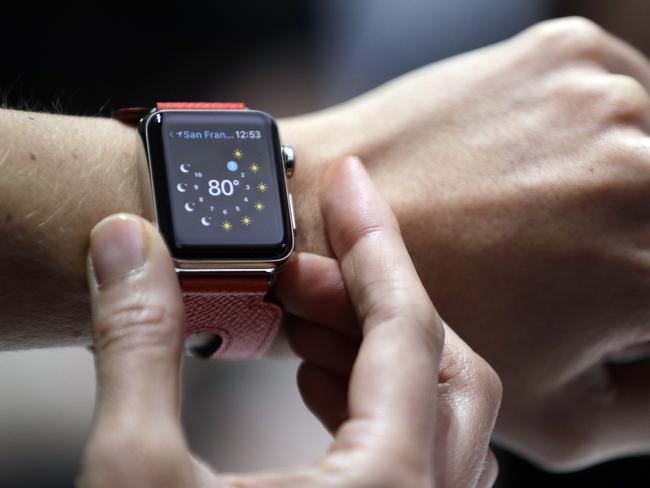Australians cement ’early adopter‘ reputation with take up of wearable technology
AUSTRALIANS are leading the charge in wearable technology, as a new study finds fitness trackers offer no useful weight loss benefit.
Technology
Don't miss out on the headlines from Technology. Followed categories will be added to My News.
AUSTRALIANS are leading the charge to strap wearable technology on to their wrist, with the take up of the latest must-have gadgets being twice of that of key European markets.
Kantar Worldpanel ComTech shows that Australia is just behind the world-leading United States market, with 13.7 per cent owning a wearable technology device.
That figure compares with 8.1 per cent for the European Union, and more than double the take up rate in two of Europe’s big four markets of Germany and France that sit below six per cent.
The smartwatch is still only in its infancy as a market, with Apple releasing just the second generation of Apple Watch last week, but it has made a dramatic rise in catching up to the older fitness band market.
HANDS ON: The Apple Watch Series 2 is a better fit as an exercise watch

In the US market in the past three months, 47 per cent of all wearable sales were smartwatches versus fitness bands.
And that near 50-50 split comes in a recent slowdown in smartwatch sales, with many people putting off buying an Apple Watch in the lead up to the announcement of the second generation device.
Apple was late to the smartwatch market when it launched the Apple Watch last year but the Kantar figures show it is now the market leader.
You can expect to see more people glancing at their wrists for their message notifications, with about 10 per cent of people saying they intend to buy a wearable in the next year.
Meanwhile, a new study has found that fitness trackers offer no useful weight loss benefit.
The two-year study of 471 overweight people found wearable technology such as fitness trackers may not offer an advantage over standard behavioural weight loss approaches.

Participants were placed on a low-calorie diet, prescribed increases in physical activity, and had group counselling sessions as part of the study, one of the first into the effectiveness of fitness trackers.
Six months into the study, half of the volunteers were given a fitness tracker to monitor their progress.
But researchers with the University of Pittsburgh found those provided with wearable technology lost less weight than the control group by the end of the trial.
Specifically, those with the fitness trackers lost on average 3.5kg, while those left to their own monitoring lost 5.9kg on average.
Lead researcher Dr John Jakicic said it was possible those using fitness trackers may have felt they were able to reward themselves with “treats” more than other participants, prompting lower levels of weight loss.
The study was published in the Journal of the American Medical Association.
— with AAP
Originally published as Australians cement ’early adopter‘ reputation with take up of wearable technology






